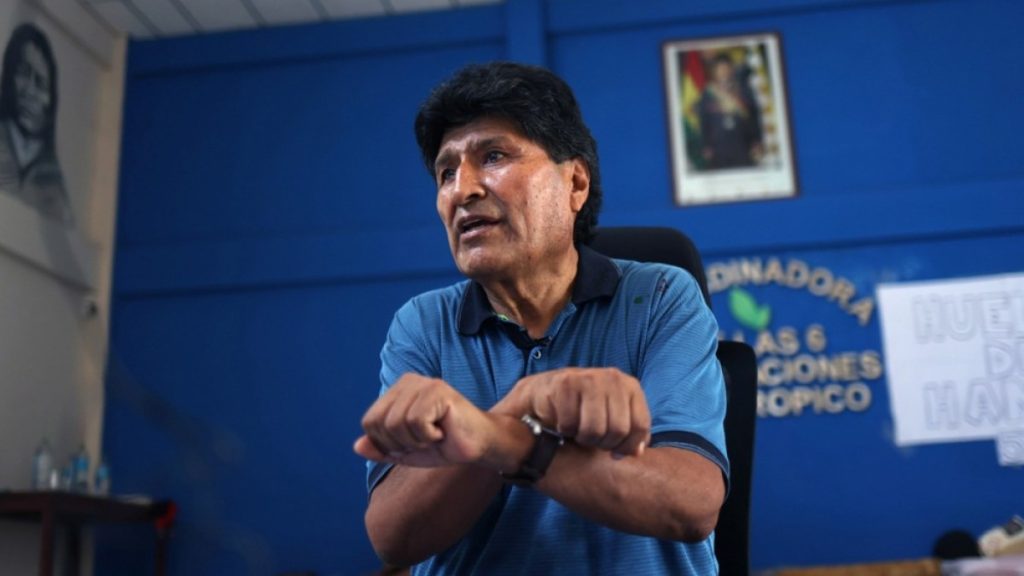The recent ruling by Bolivia’s constitutional court has barred former President Evo Morales from running for elected office, including the upcoming presidential elections scheduled for August 2025. This decision reaffirms a previous court order that limits a president to serving only two terms, whether consecutive or not, without the possibility of extending it to a third term. Morales, Bolivia’s first Indigenous president, led the country from 2006 to 2019 and was once extremely popular. However, his attempt to seek a fourth term by bypassing the constitution led to his resignation in 2019 amid deadly protests over alleged election fraud.
Following his resignation, Morales fled the country and returned after his former ally Luis Arce won the presidency in 2020. Since then, tensions between the two men have risen as they have struggled for control over the governing party, Movement Toward Socialism (MAS). The recent court ruling came in response to a request from a parliamentarian seeking clarification about a previous decision made in December 2023. It also comes amidst ongoing protests by Morales’s supporters, who have taken to blocking roads, holding soldiers hostage, and calling for Arce to resign.
The protests began in mid-October after Morales was charged with statutory rape over his alleged relationship with a 15-year-old girl while in office, a charge he denies. Political tensions escalated further after Morales accused the government of attempted assassination in late October, which the Arce administration refuted by claiming Morales staged the incident to garner sympathy. While Morales has yet to comment on the court ruling, his lawyer has criticized it as politically motivated and aimed at disqualifying Morales from future elections. Bolivia is now set to hold its next presidential election in August 2025, marking a new era of politics in the country without Morales on the ballot.
In response to the court ruling and ongoing political turmoil, legislators loyal to Morales caused chaos in Congress on Friday by shouting and throwing flowers, disrupting Arce’s planned address. The situation highlights the deep divisions within Bolivia’s political landscape and the challenges faced by the current administration in maintaining order amid protests and opposition. As the country prepares for the upcoming elections in 2025, it remains to be seen how Morales’s absence from the ballot will impact the political dynamics and shape the future direction of Bolivia’s governance.


